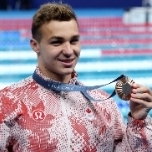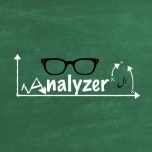
Interview with Shiny Fang, UIPM Secretary General, on changes in the modern pentathlon
The UIPM has recently announced the introduction of the New Olympic Pentathlon, which aims to shorten the time of the competition and make it more attractive to the audience. The approval of the format by the Executive Board caused a mostly negative reaction, from the athletes, whom the changes will affect the most. The following is an interview with Shiny Fang, UIPM Secretary General, in which she tries to explain the biggest doubts about the changes.
The first question is, what is on the mind of the Pentathlon community – what is the reason for those changes?
To aim for the future, to embrace the youth, and to widen the sport’s audience with a more compact and understandable sport product for media, also to demonstrate our most complete athletes in a shorter time without losing audience in between parts of the longer competition.
Modern pentathlon’s place in the Olympic programme is a crucial thing for the sport, which is also a legacy of being founded by Baron Pierre de Coubertin himself. Was the proposal consulted with the IOC representatives as they should be the ones to know better, in which direction the changes should go?
Certainly UIPM as the world governing body of the sport knows better how we can improve the sport and its product/format. However, if we are talking about Pentathlon in the Olympic Games, we first need to understand what is the IOC’s vision for future Games, and what would be the most valuable things to evaluate the sport’s impact in the Games. Therefore, it is a collective effort by all involved or responsible parties in the Games, including valuable advice from OBS, Olympic Channel and Paris 2024.
Modern pentathlon has been changing for some time, but this is a true revolution. Doesn’t it bring confusion to new pentathlon fans to learn the sport from the beginning?
Well, what we are changing or innovating is about our sports product, to smoothly shape it to a fan-friendly and media-friendly format so that audience can see a compact and complete sport within a shorter time. As you might know well, the sport has come from 5 days, to 1 day, to 5 hours, and now to 90min. However, what we haven’t changed is the core essence of the sport created by Coubertin – that is, the historical elements/disciplines are still the same since the sport was born.
The proposed changes apply for only the Olympic Games (and the Olympic qualifiers, as far as I understand). Would it not be harder for fans to learn one format for the Olympics and another for all other competitions?
We do have EB approved Olympic format and qualification events format, and those Olympic qualification events will be major UIPM competitions. Therefore, in terms of the format for UIPM major competitions, we will keep the same direction as the Olympic format, but with certain flexibility, such as number of athletes in final group, length of the breaks between each disciplines, etc.
For UIPM competitions, we will have relatively more time to test and to fix more details, since the qualification events will only start from 2023. But for the Olympic format, we must be in line with the timeline of the IOC and Paris 2024, to give organisers enough time. By the way, it is quite normal that some other sports also have an Olympic format and a different IF format, so nothing unusual.
The athletes are openly against it, and primarily because of the increased injury risks caused by a shortened warm-up time. Was the new format consulted with them?
Actually the athletes are not against innovations, they are open-minded and intelligent, also sometimes they give us a lot of good ideas. For the new format, due to a series of processes which we also want to keep low profile with mainly athletes representatives in each working group and committees, it is normal that a lot of athletes who haven’t joined in athletes meetings at earlier stage, haven’t been well informed.
Clearly, the communication with athletes is the key, and during the athletes call on November 11, a lot of their questions and doubts were addressed. But it is not enough, we will certainly engage more with them during the rest of the process.
There were also very few test events with the new format – just the two in Budapest and Cairo, where the participation of athletes from all around the world was limited due to Covid-19 pandemic. Has the UIPM tried to conduct more test events, for example during the national competitions that were held in different countries, for example Russia, Belarus or Poland?
Actually, we felt fortunate that we were able to manage two decent tests during this pandemic time with full support of our organizers, and yes, we will have more tests in 2021 before and/or after the Tokyo Olympics. More details will be fixed early in 2021.
The changes were to be introduced this year, but because of the pandemic the Congress will be held in 2021. Were there ideas to postpone it to the 2024-2028 Olympic cycle, as the pre-Paris one is a shortened one after?
No we won’t postpone, innovation has been a continuous process for decades in UIPM, Paris is a milestone that we cannot miss, and it will demonstrate more possibilities for LA 2028 as well.
- John Foyne, Gianlu33, Wumo and 1 other
-
 4
4






Recommended Comments
Create an account or sign in to comment
You need to be a member in order to leave a comment
Create an account
Sign up for a new account in our community. It's easy!
Register a new accountSign in
Already have an account? Sign in here.
Sign In Now